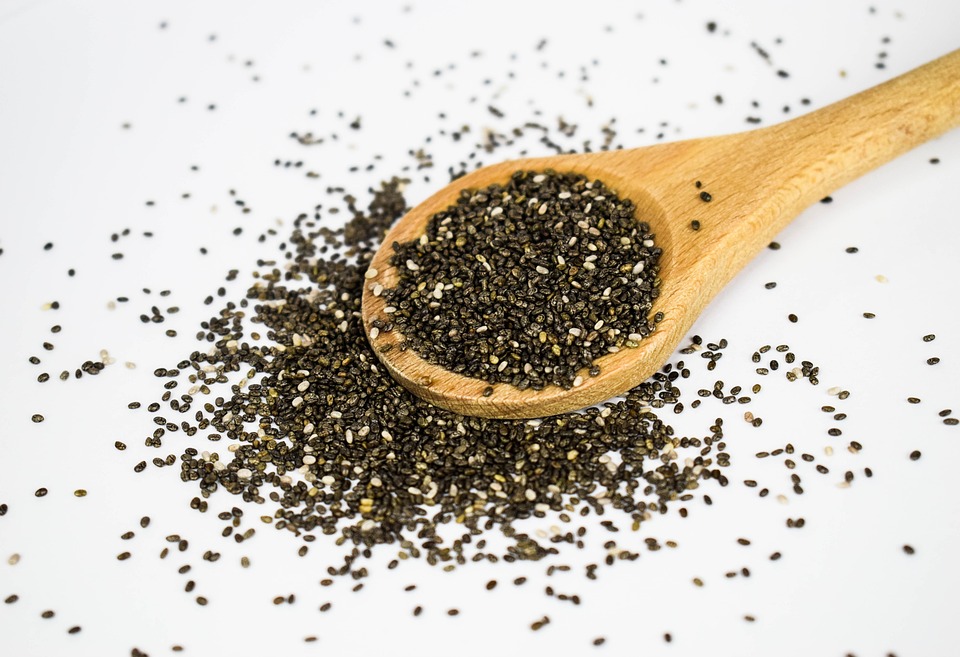It is essential to take care of yourself and your physical wellbeing during this difficult and unpredictable period. Consuming healthy, nutritious meals can help to strengthen your immune system. Foods that are super nutritious and are packed with plenty of vitamins, minerals, enzymes, antioxidants, essential fatty acids, essential amino acids, and fiber are referred to as superfoods.
Many of us are staying home and stocking up. Do not allow yourself to take this as a justification for consuming unwholesome foods and neglecting your objectives for weight reduction. It is just as crucial to include fruits and vegetables, as well as lean proteins, in your meals and snacks as staples. Doing so will not only make them taste better, but will also add to their nutritional value. These are our top picks for food that helps strengthen the immune system and keeps weight in check.
Vegetables
Cruciferous Vegetables
Cruciferous vegetables are a fantastic selection for those looking to maintain their weight, as they are rich in fiber and low in calories. This combination will make you feel full and keep you feeling satisfied for longer. Furthermore, they are an outstanding provider of folate, vitamin K, vitamin C, vitamin A, and phytonutrients that aid in reducing swelling. They can also reduce the likelihood of getting cancer, making them an ideal food for strengthening the immune system.
Sweet Potato
One way to satisfy your craving for something sweet is to have sweet potatoes. Apart from tasting great and being similar to a dessert, these food items provide a lot of fiber, Vitamin A, Vitamin C, Manganese, Riboflavin, Phosphorus, Vitamin E, Vitamin K, Calcium, and Iron. They can aid in regulating blood sugar levels, increase immunity, and even heighten memory. If you’re looking for a sweet treat for dinner while you’re self-isolating, you can make a baked sweet potato to fulfill your sugar desires in a healthy manner.
Beets
Beets have earned their reputation as a superfood due to their high levels of betanin and vulgaxanthin. These two phytonutrients have the ability to reduce inflammation and also help with antioxidant and detoxification processes. Beets contain a variety of beneficial vitamins and minerals, such as folate, vitamin C, B6, iron, copper, phosphorus, magnesium, potassium, and dietary fiber. Bake them for a speedy, pleasant topping to salads.
Spinach
Popeye, the beloved cartoon character, showed us that spinach is a great source of essential nutrients. This food is an excellent source of iron, calcium, vitamin C, vitamin A, folate, potassium, magnesium, copper, zinc, and protein. Some studies have indicated that the thylakoid components found in spinach can slow down the stomach’s emptying rate, reduce the production of the hunger-stimulating hormone ghrelin, and boost the generation of the appetite-suppressing hormone GLP-1. Spinach is a great option for anyone looking to lose, maintain, or improve their health due to its superfood qualities.
Asparagus
Asparagus is packed with fiber, vitamins A, C, E, and K, as well as the potent antioxidant glutathione, making it an ideal food for maintaining wellness and good health. Glutathione works to combat potentially harmful free radicals, including carcinogenic materials, while Vitamins A, C, and E collaborate to make asparagus one of the top superfoods for boosting the immune system.
Fruits
Pomegranates
A single serving of pomegranate seeds has 144 calories, 7 grams of fiber, 3 grams of protein, and a large amount of vitamin C, vitamin K, folate, and potassium. These super-seeds also contain powerful antioxidants called punicalagins. Together these nutrients give pomegranates strong anti-inflammatory benefits. Investigations have demonstrated that nuts can help forestall coronary illness, malignancy, type 2 diabetes, Alzheimer’s, and heftiness. You could have a handful of these as a snack in the afternoon to get an energy boost without many calories, or you could put them on top of your salad to make it more nutritious and give it an attractive look.
Blueberries
In addition to being scrumptious, blueberries are packed with antioxidants that may help to prevent cancer, support a healthy heart, and improve cognitive performance. A cup of blueberries has a low calorie count of 84, and it is packed with 4 grams of fiber, making it an ideal snack for people looking to lose weight. If fresh blueberries are too costly or not attainable, pick up frozen berries—you will not lack any nutrients.
Protein, Nuts & Seeds
Almonds
These minuscule nuts contain a lot of nutrients, making them the most nutrient-rich of all nuts and one of the best superfoods. One ounce of the food (a small handful) is 161 calories and contains 3.4 grams of fiber as well as 13 grams of healthy fat. In addition, they are packed with potassium, calcium, vitamin E, magnesium, phosphorus, and iron. This collection of nourishing substances can reduce levels of cholesterol, assist with shedding pounds, and help to reduce the top number of blood pressure. If you’re feeling hungry during the middle of the day, grab a few almonds.
Salmon
The Dietary Guidelines for Americans propose having two to three servings of fish per week, each one being 3-4 ounces. Salmon is a particularly beneficial food, since it is one of the richest sources of DHA (a type of omega-3 fatty acid) and vitamin D, two nutrients which can be challenging to get through diet. The DHA has anti-inflammatory properties and is beneficial for heart health, while Vitamin D is necessary for keeping bones strong. The protein content in salmon can help you stay full for a lengthy period of time after eating. It is noteworthy that canned salmon is just as nutritious as fresh salmon. Research has even demonstrated that tinned fish may have higher levels of omega-3 fatty acids than the fresh variety. Purchase a lot of canned salmon and add it to the top of your salads or pasta meals.
Sardines
Salmon can be quite expensive. For a more affordable option, try sardines. Sardines are a great way to get the advantages of omega 3s, vitamin D, and protein that salmon provides, yet at a much lower price. Any dish that calls for tuna can be made with sardines instead of the traditional fish. It is advantageous to keep canned beans in the home because they are a good source of protein and have a lengthy shelf life. You can also purchase fresh sardines and cook them in the same way as you would with salmon.
Eggs
Throughout the years, eggs have been the center of much disagreement. Despite the poor reputation they had in the 1990s, it is now understood that eggs are incredibly beneficial to one’s health. Eggs are a great source of protein, and their yolk contains a wealth of essential nutrients including B vitamins, vitamin D, vitamin A, selenium, folate, and choline. Some even contain omega-3 fatty acids. Research has demonstrated that eggs can help with slimming down, bettering mental performance, and keeping eyesight healthy. Another added benefit is that they are extremely versatile. They can be consumed at any mealtime, or as a satisfying snack. Take a look at this list of 50 Egg Recipes that were put together by the Food Network.
Chia Seeds
Chia seeds are a fantastic addition to any diet for keeping weight off, managing weight, and controlling hunger. Two tablespoons of this food item have 139 calories, 11 grams of fiber, and 4 grams of protein. They also contain a lot of omega-3 fatty acids, calcium, and antioxidants. Incorporate chia seeds in your diet by blending them into smoothies, incorporating them into baked goods, or making a chia seed pudding.
Top 7 Natural Supplements to Optimize the Immune System
Zinc
As reported in the Journal of Nutrition, nearly half of all Americans do not consume enough zinc in their diets, which is an essential element that is involved in more than 300 biochemical processes in the body. Globally, over a sixth of the population is lacking in zinc.
As we get older, our ability to absorb essential minerals such as zinc can become impaired. In addition, inadequate intake of foods that contain zinc or regular drinking of alcohol can lead to a persistent lack of zinc. A 2018 study in Nutrients5 found that not having enough zinc can make someone more likely to get an infection or suffer from an auto-immune disorder.
A 2016 investigation revealed zinc’s crucial part in aiding immune system cells to communicate with one another. A 2017 study in Nutrients8 showed the significance of zinc in preserving both the innate and adaptive immune systems.
Take zinc lozenges as instructed on the packaging, 30 mg at a time. Zinc can be taken in different forms; make sure to follow the instructions on the package. Zinc is also found in most multivitamins.
Vitamin C
In the past half-century, ascorbic acid or ascorbate, commonly known as Vitamin C, has been intensely investigated. Studies indicate that vitamin C can be beneficial in boosting the immune system, as well as offering a range of other advantages.
A 2019 study has shown that a lack of vitamin C will cause a weakened immune system. The majority of people should take between 500 and 2,000 milligrams of the substance each day.
Reishi Mushrooms
Eastern medicine utilizes the reishi mushroom (ganoderma lucidum and lingzhi) for medicinal purposes. It is usually found in places with warm and damp climates in Asia. Mushrooms can be eaten, powdered, or taken as a supplement, and are thought to enhance the immune system.
A research in 2003 revealed that the reishi mushroom might boost the functioning of NK or natural killer cells, which assist in getting rid of viruses. A research study conducted in 2008 discovered that mushrooms might also boost T cell activity. A 2019 study published in Scientific Reports showed that the active component of reishi mushrooms has the ability to fight viruses. Suggested dose: As directed on the label.
Omega-3 Fatty Acids
Polyunsaturated fatty acids (PUFAs), also referred to as Omega-3 fatty acids, are essential for maintaining good health. Mainly made up of eicosapentaenoic acid (EPA) and docosahexaenoic acid (DHA), it is thought that these elements can provide a multitude of advantages for one’s overall wellbeing, such as enhancing the immune system.
A 2014 Nutrition Journal study revealed that the vast majority of people do not get enough essential fatty acids in their diets. It is regrettable that other research indicates the beneficial effects on the immune system.
A 2019 research paper suggested that omega-3s could be beneficial in increasing the strength of both innate and adaptive immune system cells. A study conducted in 2017 revealed the significance of omega-3s in macrophages, which are cells that combat infection. Additionally, a study from 2012 demonstrated that omega-3s could aid macrophages in engulfing bacteria that causes illness.
You can acquire Omega-3 fatty acids from consuming fish such as mackerel, cod, or salmon, as well as walnuts, chia seeds, flax seeds, hemp seeds, avocado, and natto. It is recommended to take between 1,000 and 2,000 milligrams once or twice a day.
Probiotics
Probiotics are advantageous microorganisms, which can enhance not only intestinal well-being but with general health and well-being. Around 80% of our immune system is located in our digestive system, which is why consuming beneficial bacteria can help maintain our health. It is a good idea to include cultured foods like yogurt, kefir, and kombucha in your diet. When not enough, probiotic supplements are useful.
Probiotics play an important role in regulating our immunity. A 2009 study revealed that taking probiotics may lessen the severity and length of Respiratory Tract Infections, but the same study did not indicate any decrease in the number of such infections.
A 2017 study of children also showed benefit. After conducting an in-depth evaluation, the researcher determined that the ingestion of Lactobacillus rhamnosus slightly shortens the length of respiratory illnesses.
In 2017, a study in the journal Nutrients looked at the effect of probiotics and prebiotics in people who had been vaccinated against the flu. Included in the study were 1,979 participants. The findings indicate that those who ingested probiotics and prebiotics had a heightened immunological reaction to the vaccine, suggesting that they had a more robust immune system and were less likely to get sick. It is recommended to take 5 to 50 billion units of the medication either once daily or twice a day.
Ginseng
Consumption of Panax ginseng is used to treat a wide variety of medical issues. This plant has been around for two millennia, originating in Korea. Panax ginseng, which is cultivated in areas of China and Siberia, is distinct from other types of ginseng, including American and Siberian ginseng, and should not be confused with them. Panax ginseng is also known as Korean ginseng, Chinese ginseng, or Asian ginseng.
Ginsenosides are the components that make up Panax ginseng.
A 2015 research study concluded that ginseng can help protect against RSV (respiratory syncytial virus) by increasing cell survival, partially blocking virus replication, and regulating the production of cytokines and the types of immune cells that migrate to the lungs.
A 2020 study in the Journal of Ginseng Research found that ginseng has the ability to reduce the levels of interferon gamma (IFN-γ), tumor necrosis factor alpha (TNF-α), interleukin 2 (IL-2), interleukin 4 (IL-4), interleukin 5 (IL-5), interleukin 6 (IL-6), and interleukin 8 (IL-8), which are cytokines that cause inflammation in respiratory cells and macrophages. The scientists went on to say that ginseng, in varying amounts, is a safe and successful way to prevent colds and flu in the cold season, lessening the symptoms and diminishing the risk and duration of these illnesses. It is recommended to take ginseng as instructed on the product’s label.
Be mindful: Until we have more facts, the supplements listed below should be handled cautiously if someone is in danger of a “cytokine storm”, which can develop during some serious viral infections. It is thought that taking the supplements below may lead to an increase of IL-1B and IL-18 cytokines, which is not beneficial when one is unwell.
Echinacea
Echinacea purpurea is a long-lasting herb that has been part of the culture of North American indigenous people for close to two millennia. Echinacea, a medicinal herb renowned for its powerful antioxidant properties, has been used for centuries to address respiratory, urinary, and skin issues. This herb has been proven to be safe to consume over an extended period of time for both adults and kids.
A research paper published by JAMA in 2015 demonstrated that taking echinacea did not guard against getting a cold, but it could reduce the length of the illness, implying that it helps the body to combat an existing infection.
A 2016 study found in the journal Holistic Nurse Practitioner indicated that echinacea may be beneficial in warding off colds. Other studies have shown similar findings. Echinacea can often be taken in the form of a tea, pill, or extract. Take as directed on the label.



